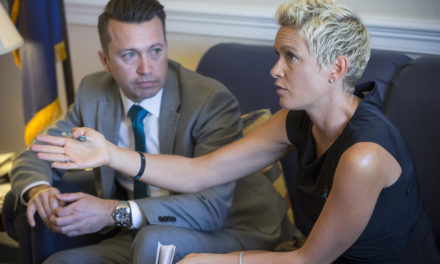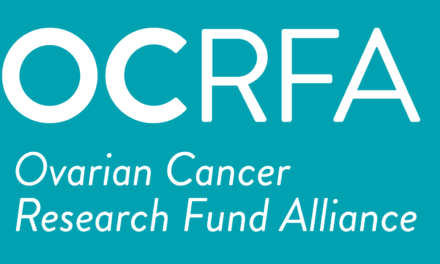Once you have an ovarian cancer diagnosis, you may feel overwhelmed, wondering what questions you should be asking next.
A major resource for me after my diagnosis was Inspire.com. I could log in anytime and it allowed me to choose what I wanted to search and hear stories from other women that had been where I was heading. I had to be careful which threads I clicked on because honestly, sometimes I didn’t want to know what might be ahead for me. I wasn’t in denial – I just needed a break from worst-case scenarios.
At Inspire.com, I was able to scroll through conversation topics and avoid tougher conversations that I wasn’t strong enough to face on certain days.
Now, I look back and realize all the questions I didn’t know to ask when I first received my diagnosis. Part of the reason SherryStrong.org exists is because I don’t want you to go through the same confusion I had some days.
If you have a pelvic mass and your OB recommends surgery, my best advice is to research a gynecologic oncologist in your area. This is important, because women who have their surgery performed by a gynecologic oncologist have a much higher chance of survival.
The challenge is that there are not a lot of gynecologic oncologists in rural areas, so you must do the research yourself. Understand that they operate in major cities, so start there. In my post titled, “Checklist if you have a pelvic mass,” I provide info on finding a gynecologic oncologist.
Below is a compilation of questions I’ve pulled from several resources, including the Ovarian Cancer Research Fund Alliance (OCRFA) and Inspire.com:
Questions regarding an ovarian cancer diagnosis:
- What type of ovarian cancer do I have? (What is my tumor type?)
- Has my cancer spread beyond my ovaries?
- What stage is my cancer? What grade is my cancer? (generally speaking this is not determined until after surgery)
- How many cases has the doctor/hospital seen of my type of ovarian cancer? How many in young women?
- What should I do to prepare for my surgery and treatment?
- Would somatic genome testing be beneficial for me?
- Who can I expect on my health care team and how can I contact them?
- Do you have a gynecologic oncologist you can refer me to?
Questions regarding treatment:
- What is the purpose of my treatment? To control the cancer? Manage symptoms?
- Will I need chemotherapy? Radiation? Both? If I’m having chemotherapy, what are the names of the drugs I will be receiving. Then research those drugs. Talk to other women that have had them.
- If both, can you explain why I’ll have one before the other?
- How many treatments will I need to undergo?
- What are the side effects that I might experience from treatment?
- Will I be able to have children after my surgery/treatment?
- Who can I talk to about my fertility options?
- What are the pros and cons of harvesting eggs?
- Are there other options for saving my eggs that do not include harvesting?
- If fertility is an issue, how long can I delay my treatment to deal with my fertility options?
- How will my treatments affect my school or work?
- How quickly can I expect treatment to begin?
- What long-term effects should I anticipate, if any?
- Are there alternative treatments I may wish to consider?
- Should I follow a specific diet while going through treatment?
- Will I lose my hair? If I choose to wear a wig, are there cancer support organizations in the area that distribute wigs?
- What other changes might my body undergo during treatment?
- What medications will I need in order to manage the side effects of treatment or what should I be doing to help alleviate those side effects?
- Can you recommend other specialists, such as a nutritionist, who can help me be proactive about treatment?
The National Comprehensive Cancer Network also offers helpful guidelines with invaluable information.
The American Cancer Association suggests asking these questions:
- What type of ovarian cancer do I have?
- Has my cancer spread beyond the ovaries?
- What are the cell type, microscopic grade, and stage of my cancer? What does that mean?
- What treatments do you recommend for me? Why?
- What risks or side effects should I expect?
- What are the chances my cancer will recur (come back) with the treatments we have discussed?
- What should I do to be ready for treatment?
- Should I follow a special diet?
- Will I be able to have children after my treatment?
- What is my expected prognosis?
- Will I lose my hair?
- What do I tell my children, husband, parents, and other family members?




